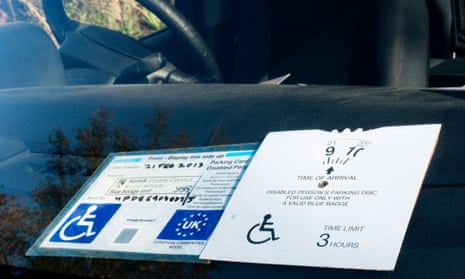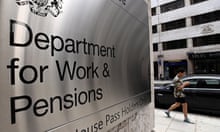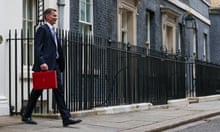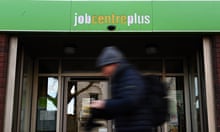Four councils are responsible for bringing more than half of the prosecutions in England for people abusing the use of disabled parking badges.
Figures released by the Department for Transport (DfT) show that Lambeth, Birmingham, Hammersmith and Fulham, and Bromley carried out 54% of all legal cases for people misusing the blue badge system, for the year up to the end of March 2021.
Lambeth had the highest amount, at 119.
The permits are given to people whose disabilities or health means that their mobility is limited. It entitles them to park free of charge in spaces that are often closer to shops and destinations. They can also park on most single and double yellow lines.
Overall, the DfT says councils took legal action against 698 people. The vast majority of prosecutions, 97%, were for people who used someone else’s blue badge. The maximum fine is £1,000.
Tom Marsland, the policy manager at the disability equality charity Scope, said: “It’s appalling that year after year blue badge crime seems to be flying under the radar. This has been going on for too long. Misusing a blue badge could mean you’re taking the parking space of a disabled person who truly needs it.
“Laws around blue badge misuse are pointless if they aren’t enforced.”
There have been calls in recent weeks for the permits to be made paperless to cut down on the problem of thefts, with Haringey council in north London saying that incidences of the crime had fallen by 65% since November 2022 when it introduced paperless permits.
The AA has raised concerns that councils do not take enforcement seriously, after the data also showed that more than two-thirds of councils, 110 out of England’s 140 local authorities, had not prosecuted anyone at all for misusing them.
Edmund King, the association’s president, said: “It is shocking that more than half of blue badge prosecutions come from less than a handful of local authorities, as this indicates that the majority of local authorities are not taking enforcement seriously.
after newsletter promotion
“Ultimately the blame lies with the fraudulent drivers who are abusing the system.”
In 2019, the government extended the scheme’s availability to include people with Parkinson’s, dementia and epilepsy.
Lambeth’s cabinet member for environment, Rezina Chowdhury, said the council had benefited from taking a “proactive approach” and establishing its own investigation team in 2008 to tackle the issue.










